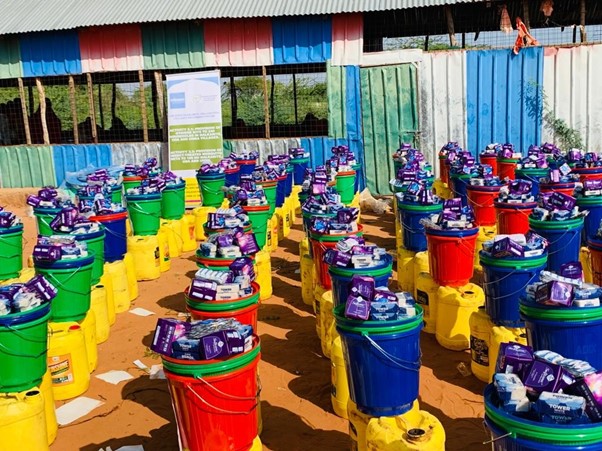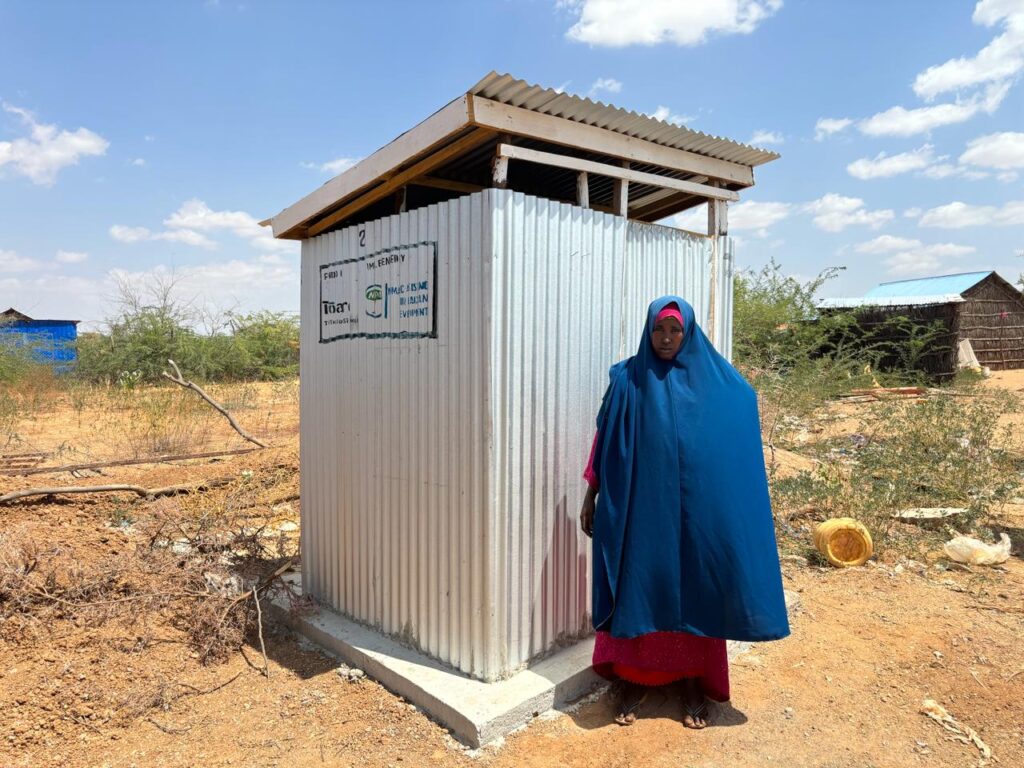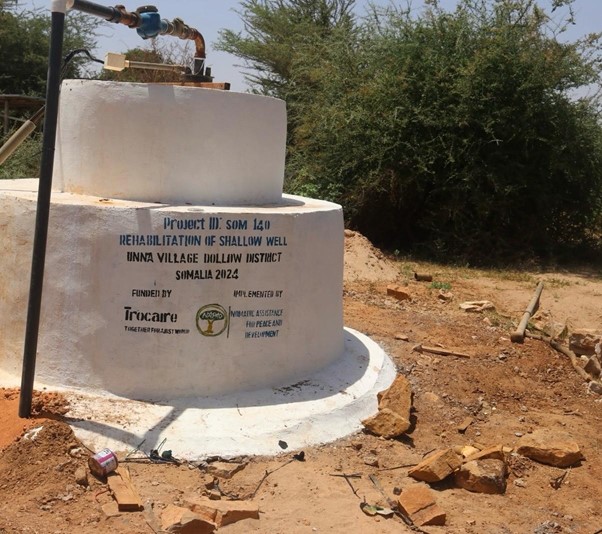Good hygiene and sanitation practices can save lives
In the Gedo region of Somalia, the River Dawa is a double-edged sword for the communities it supports. While it sustains agricultural livelihoods during the dry seasons, it can quickly become a source of devastation during periods of heavy rainfall, as witnessed during the El Niño-induced flooding from October-December in 2023. UNOCHA reported over 1.5 million people in Somalia were displaced during this period. The floods resulted in human fatalities, livestock losses, and significant damage to vital infrastructure such as roads, water sources, bridges, property, crops, and farmlands. This humanitarian crisis also increased the risk of acute watery diseases, cholera infections, and the spread of malaria, posing additional threats to an already vulnerable population.

Empowering flood-affected households with essential hygiene kits
In response to the urgent needs of the flood-affected communities, Nomadic Assistance for Peace and Development (NAPAD) in partnership with Trocaire and with funding from CAFOD, provided essential hygiene kits to Halima Sacdiya, a mother of six, affected by the floods in Malkraiye village along with 239 other households from Oda village in Belethawa district and Unna Village in Dollow district, three of the hardest hit villages. These kits included multipurpose bar soaps, water storage containers, aqua tabs, and sanitary towels, to mitigate the risk of AWDs/Cholera and improve menstrual hygiene management of the women and girls in a dignified manner.
Halima, recognizing the heightened risk of vector-borne diseases such as malaria during the flooding, ensured that her family slept under treated mosquito nets provided by NAPAD. Her proactive attitude towards protecting her children’s health highlights the importance of access to resources and information in mitigating health risks during humanitarian crises.
According to the World Health Organization, climate change is one of many threats to the global response to malaria. Millions need the necessary services to prevent, detect, and treat the disease. Humanitarian crises such as floods, resource constraints, and other biological challenges such as drug and insecticide resistance continue to hinder progress in combating malaria.
Moreover, NAPAD invested in community capacity building through the training of nine Community Health Volunteers (CHVs) crucial in disseminating knowledge about good hygiene and sanitation practices and El Niño preparedness. The CHVs conducted extensive door-to-door hygiene promotion campaigns, reaching 5461 people across Unna, Oda, and Malkariye villages. The campaigns focused on promoting simple yet impactful behaviours, such as handwashing with clean water and soap and how to treat household water for drinking and cooking. Promoting a gradual shift in community behaviour laid the groundwork for sustainable health outcomes beyond the immediate crisis.
Emergency Rehabilitation of Critical WASH Infrastructure

Halima Sacdiya standing near one of the emergency latrines constructed in Malkariye village
Furthermore, the construction of 12 emergency communal latrines away from flood-prone areas, provides alternative safe spaces for sanitation to the community. This is necessary because the older latrines were either washed up by the floods or destroyed. NAPAD also provided 300 households with portable solar lamps mitigating the safety risks for the women and girls using restrooms, especially at night. This ensures access to sanitation without compromising safety.

Rehabilitated shallow well at Unna Village
One significant concern was rehabilitating clean water sources, which is crucial for meeting the immediate WASH needs and the long-term health of affected communities. Targeting the severely impacted villages of Oda, Malkariye, and Unna, this project also focused on their long-term recovery and rebuilding efforts. A key aspect was the rehabilitation of 3 shallow wells and water pipe works damaged during the floods in each village. As a result, 5322 people now have regained access to life-saving clean water for their daily needs.
‘’We now have access to clean water near our home after the flooding. We are excited and happy about it, and this would have never been possible without NAPAD and its donors.” Appreciates Zakaria Abdirashid, chief Unna Village.
Through a comprehensive approach involving emergency relief, community education, and infrastructure development, NAPAD and Trocaire responded to the immediate needs of the flood-affected communities and empowered them to build resilience and adapt to future crises.
Nomadic Assistance for Peace and Development (NAPAD) invites you and your organization to join us in our efforts to build resilience and improve the lives of vulnerable communities in Kenya, Somalia, and Ethiopia. We provide life-saving interventions, recovery, and resilience-building assistance to climate change-impacted communities, empowering them to adapt to future challenges. Your support, expertise, donations, advocacy, or capacity-building assistance would significantly impact our work. If interested, please reach out through info@napad-int.org for further discussion. Thank you for considering this partnership opportunity.
